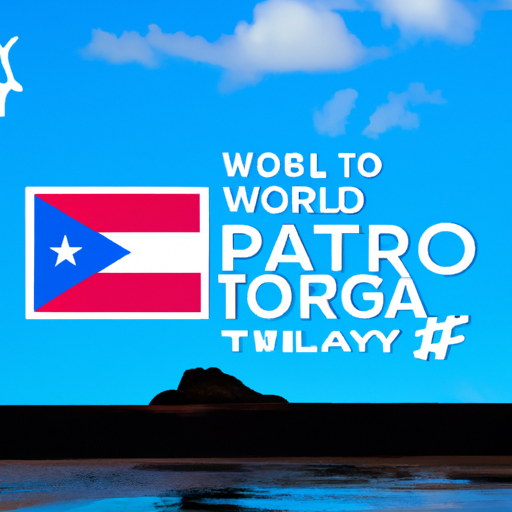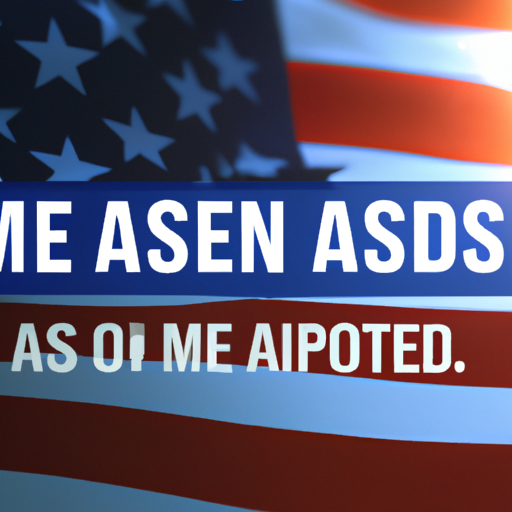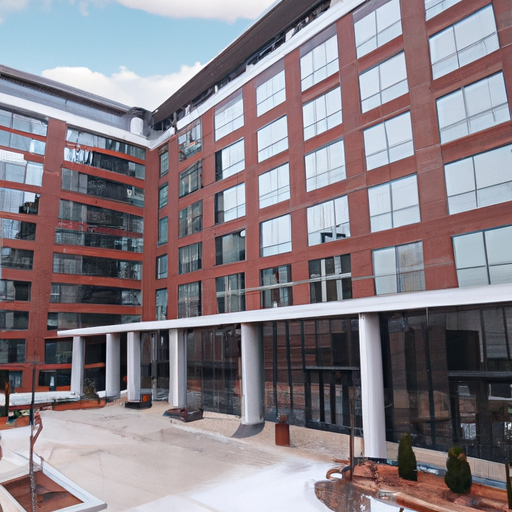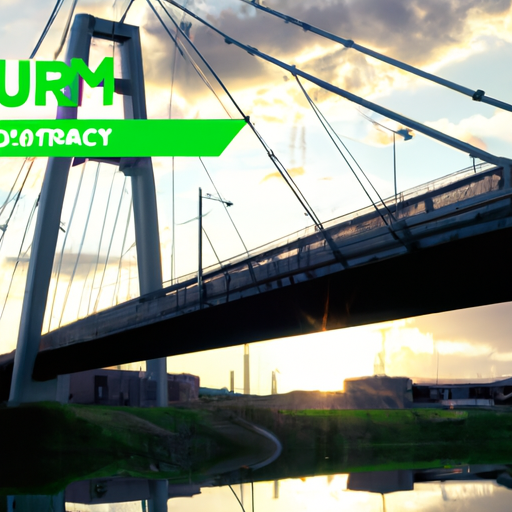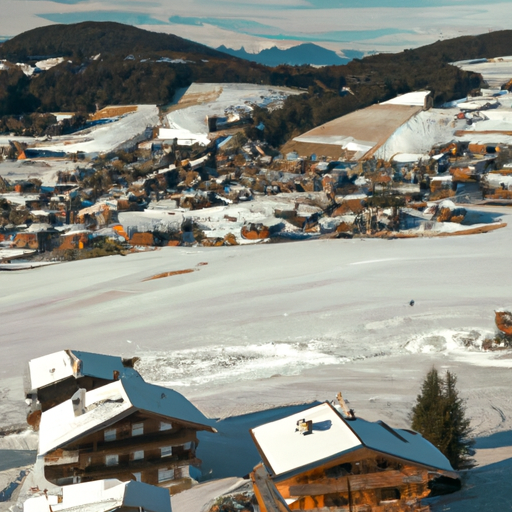Celebrating World Tourism Day: A Collaboration of WTTC and Puerto Rico Tourism Company
World Tourism Day is a significant event celebrated globally, and this year, the World Travel and Tourism Council (WTTC) and the Puerto Rico Tourism Company (PRTC) joined forces to mark this special day. The collaboration was a testament to the importance of tourism in fostering global understanding and promoting cultural exchange.
The WTTC, a private sector forum for travel and tourism, has always been at the forefront of advocating for the industry. It has consistently worked towards raising awareness about the role of tourism in contributing to economic growth, job creation, and social development. On the other hand, the PRTC, a government agency dedicated to promoting tourism in Puerto Rico, has been instrumental in showcasing the island’s rich culture, history, and natural beauty to the world.
The collaboration between these two entities was a strategic move aimed at highlighting the significance of tourism in today’s world. The joint celebration of World Tourism Day was marked by a series of events and activities that underscored the importance of sustainable and responsible tourism.
The festivities kicked off with a grand parade that showcased the vibrant culture and traditions of Puerto Rico. The parade was a visual treat, with participants dressed in traditional attire, performing folk dances, and playing indigenous music. The parade was not just a celebration of Puerto Rican culture, but also a demonstration of the island’s commitment to preserving its heritage and promoting it as a unique tourism destination.
Following the parade, a series of workshops and seminars were held, focusing on various aspects of tourism. Experts from the WTTC and PRTC shared insights on sustainable tourism practices, the role of technology in tourism, and the importance of community involvement in tourism development. These sessions were aimed at educating the public and industry stakeholders about the latest trends in tourism and how they can contribute to the industry’s growth.
The highlight of the day was the unveiling of a new tourism campaign by the PRTC. The campaign, titled “Discover Puerto Rico,” is aimed at attracting more tourists to the island by showcasing its diverse attractions. From its pristine beaches and lush rainforests to its historic sites and vibrant nightlife, the campaign promises to offer something for every traveler.
The WTTC and PRTC’s joint celebration of World Tourism Day was a resounding success. It not only highlighted the importance of tourism but also showcased how collaboration between different stakeholders can lead to the growth and development of the industry.
As the day came to a close, the message was clear: tourism is not just about visiting new places; it’s about experiencing different cultures, learning about history, and contributing to local economies. It’s about making the world a smaller place through understanding and mutual respect.
In conclusion, the collaboration between the WTTC and PRTC on World Tourism Day was a significant step towards promoting sustainable and responsible tourism. It served as a reminder of the power of tourism in bridging cultural gaps and fostering global understanding. As we look forward to the next World Tourism Day, we can only hope for more such collaborations that highlight the importance of tourism and its role in making the world a better place.
How WTTC and Puerto Rico Tourism Company are Marking World Tourism Day

World Tourism Day is a significant event on the global calendar, celebrated annually on September 27th. This year, the World Travel and Tourism Council (WTTC) and the Puerto Rico Tourism Company (PRTC) have joined forces to commemorate this special day in a unique and meaningful way.
The WTTC, a private sector forum for the travel and tourism industry, has been instrumental in promoting sustainable growth for the sector. On the other hand, the PRTC is a government agency dedicated to promoting tourism in Puerto Rico. Together, they are marking World Tourism Day by highlighting the importance of the industry to global economic recovery, particularly in the wake of the COVID-19 pandemic.
The two organizations are using this day to emphasize the role of tourism as a driver of economic growth and job creation. They are also underscoring the importance of responsible and sustainable tourism practices, which are crucial in preserving our planet for future generations.
To mark the occasion, the WTTC and PRTC are organizing a series of events and initiatives. These include webinars, panel discussions, and virtual tours, all aimed at raising awareness about the importance of tourism and its potential to drive economic recovery. The events will feature industry leaders, experts, and stakeholders, who will share their insights and experiences on various aspects of tourism.
One of the key highlights of the day will be a virtual tour of Puerto Rico, showcasing the island’s rich cultural heritage, stunning natural beauty, and vibrant tourism industry. This virtual tour is designed to give people around the world a glimpse of what Puerto Rico has to offer, thereby promoting the island as a top tourist destination.
In addition to these events, the WTTC and PRTC are also launching a social media campaign to engage with a wider audience. The campaign will feature stories and experiences from tourists who have visited Puerto Rico, as well as from locals who work in the tourism industry. The aim is to highlight the human aspect of tourism, showing how it impacts people’s lives and livelihoods.
Moreover, the WTTC and PRTC are using World Tourism Day to call on governments and policymakers around the world to support the tourism industry. They are urging them to implement policies that facilitate travel, while also ensuring the safety and wellbeing of tourists and locals alike.
In conclusion, the WTTC and PRTC are marking World Tourism Day in a way that not only celebrates the industry but also highlights its potential to drive economic recovery and sustainable growth. Through their events, initiatives, and campaigns, they are raising awareness about the importance of tourism, promoting Puerto Rico as a top tourist destination, and advocating for supportive policies.
As we celebrate World Tourism Day, let’s remember the vital role that tourism plays in our global economy and in our lives. Let’s also remember the importance of traveling responsibly and sustainably, for the sake of our planet and future generations. And let’s look forward to a time when we can all travel freely again, exploring new places, experiencing new cultures, and creating new memories.
World Tourism Day: The Impact of WTTC and Puerto Rico Tourism Company’s Partnership
World Tourism Day is a significant event that celebrates the importance of tourism and its social, cultural, political, and economic value. This year, the World Travel and Tourism Council (WTTC) and the Puerto Rico Tourism Company (PRTC) marked this special day with a renewed commitment to their partnership, aiming to further boost the tourism sector in Puerto Rico.
The WTTC, a global body that represents the travel and tourism private sector, has been instrumental in promoting sustainable growth for the industry. It has been working tirelessly to raise awareness about the importance of tourism, not just as a leisure activity, but as a vital economic driver that contributes significantly to global GDP and employment. On the other hand, the PRTC, a government agency dedicated to promoting tourism in Puerto Rico, has been equally committed to showcasing the island’s rich culture, history, and natural beauty to the world.
The partnership between the WTTC and PRTC has been a game-changer for Puerto Rico’s tourism industry. Together, they have implemented various initiatives aimed at enhancing the island’s appeal as a top tourist destination. These initiatives range from improving infrastructure and services to promoting sustainable tourism practices and enhancing the visitor experience.
One of the key achievements of this partnership has been the successful promotion of Puerto Rico as a safe and attractive destination, especially in the wake of the devastating hurricanes that hit the island in 2017. The WTTC and PRTC worked together to rebuild the tourism sector, focusing on restoring infrastructure, reviving local businesses, and reassuring potential visitors about the island’s readiness to welcome them.
Moreover, the partnership has also been instrumental in driving sustainable tourism in Puerto Rico. The WTTC and PRTC have been advocating for responsible travel practices that not only preserve the island’s natural and cultural heritage but also benefit local communities. They have been encouraging tourists to engage with local culture, buy local products, and respect the environment, thereby contributing to the local economy and promoting sustainable development.
In marking World Tourism Day, the WTTC and PRTC reaffirmed their commitment to continue working together to further enhance Puerto Rico’s tourism sector. They pledged to continue their efforts in promoting the island as a premier tourist destination, while also ensuring that tourism growth is sustainable and beneficial to local communities.
The celebration of World Tourism Day by the WTTC and PRTC is a testament to the power of partnerships in driving tourism growth. It highlights the significant role that both global and local organizations play in promoting tourism and its benefits to society. It also underscores the importance of collaboration in overcoming challenges and seizing opportunities in the tourism sector.
In conclusion, the partnership between the WTTC and PRTC has had a profound impact on Puerto Rico’s tourism industry. It has not only helped to revive the sector after a major disaster but has also paved the way for sustainable tourism development. As we celebrate World Tourism Day, let’s acknowledge the efforts of these organizations and their commitment to making tourism a force for good.
